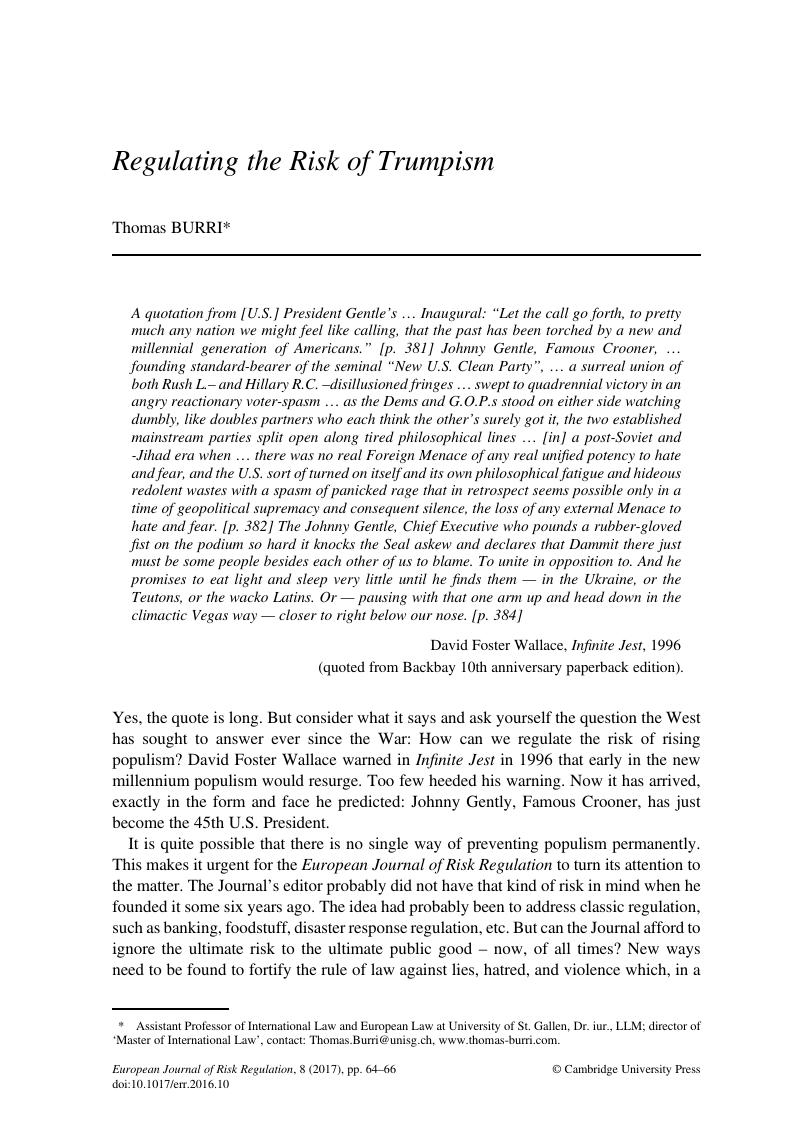No CrossRef data available.
Published online by Cambridge University Press: 26 April 2017

Assistant Professor of International Law and European Law at University of St. Gallen, Dr. iur., LLM; director of ‘Master of International Law’, contact: [email protected], www.thomas-burri.com.
1 Still the best book on risk is Peter L. Bernstein, Against the Gods - The Remarkable Story of Risk (New York: John Wiley & Sons 1996).
2 There are a number of theories, though. See for approaches (“methods”) that can be applied in international law: Steven R. Ratner and Anne-Marie Slaughter, “Appraising the Methods of International Law: A Prospectus for Readers” (1999) 93(2) AJIL 291 et sqq.
3 For an early view on the science of international law, see Lassa Oppenheim, “The Science of International Law: Its Task and Method” (1908) 2(2) AJIL 313 et sqq., notably 314, where, after having defined peace as the objective of international law, the author identified the tasks of international law: “Exposition of the existing rules of law, historical research, criticism of the existing law, preparation of codification, distinction between the old customary and the new conventional law, fostering of arbitration, and popularization of international law.”
4 As Bardo Fassbender, “The United Nations Charter As Constitution of The International Community” (1998) 36(3) Columbia Journal of Transnational Law 529 et sqq., 552, put it: “[C]onclusions are based on common sense, opinion, and intuition rather than on theoretical clarification and empirical validation” (writing about early constitutionalism in international law; cited without footnote).
5 See John Tosh, The Pursuit of History (5th edn, Pearson 2010).